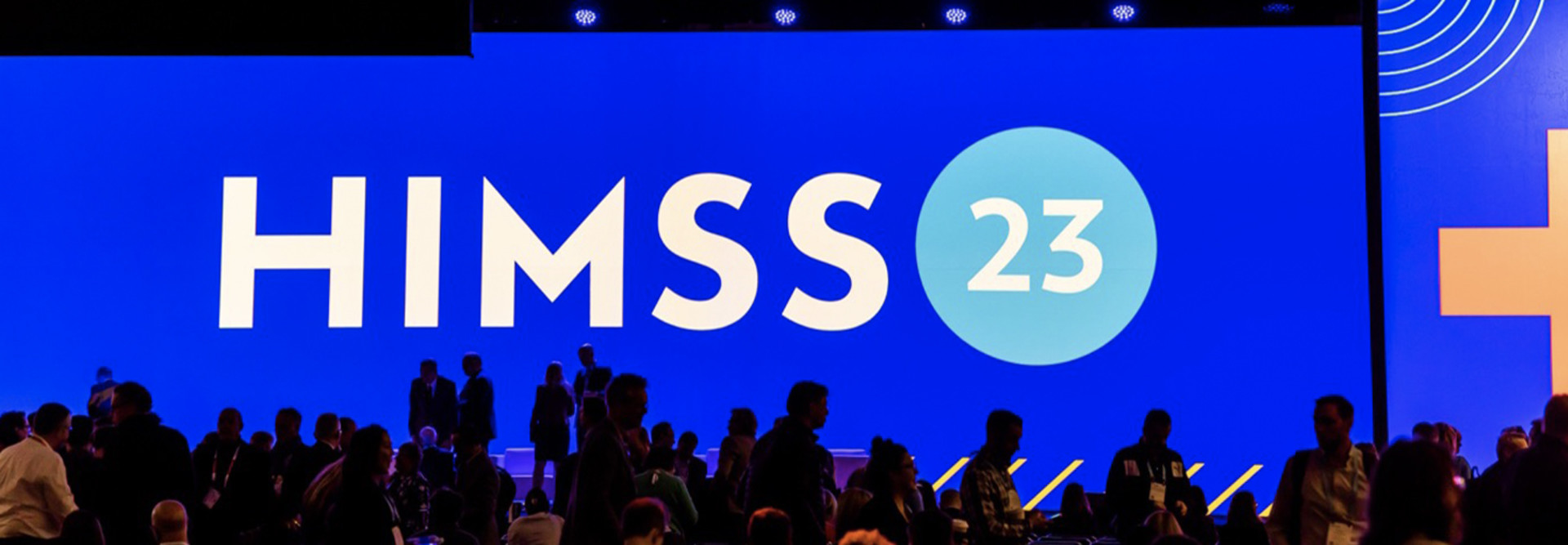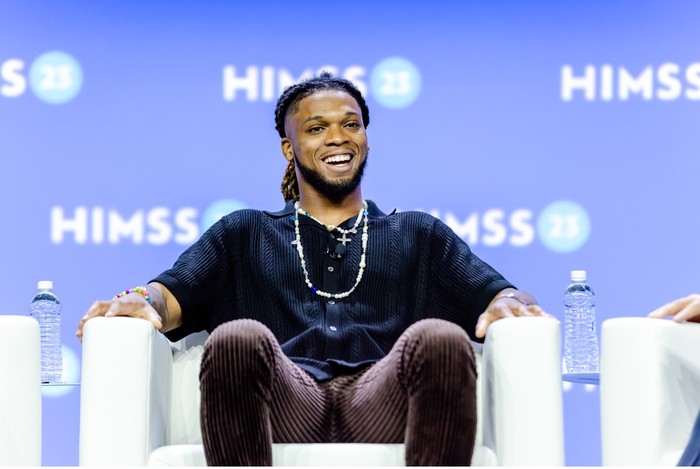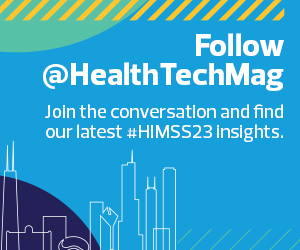The final day of the 2023 HIMSS Global Conference and Exhibition in Chicago closed with a keynote discussion featuring Buffalo Bills safety Damar Hamlin.
Hamlin spoke about his recovery and outlook after his sudden collapse due to a cardiac event during a Monday Night Football match in January against the Cincinnati Bengals. When asked whether his approach to improving on the field has changed since his health emergency, he said his ethos has stayed the same.
“You have to put the work in. You have to be consistent, disciplined and just have integrity,” Hamlin said.
The athlete’s perspective and recent experience echoed this year’s overarching conference theme, “Health That Connects and Tech That Cares.”
More patients and consumers are expecting care that treats the whole person instead of piecemeal, disparate services. Many Gen Z patients, for example, are expecting providers to ask them about how nonmedical factors, such as housing and food access, affect their health.
How can healthcare organizations meet these expectations amid tight budgets and staffing concerns? Experts at HIMSS23 shared their experiences deploying solutions powered by artificial intelligence and machine learning and building up stronger partnerships.
Buffalo Bills safety Damar Hamlin speaks during a keynote session at HIMSS23 on Friday, April 21, 2023. (Photography by HIMSS/Lotus Eyes)
Delivering the Best Care Via Integrated Tech Solutions
Jan Choy, director of AI/ML strategy and programs at Memorial Sloan Kettering Cancer Center, discussed how the health system deployed use cases in the research space, in clinical areas to support providers and in hospital operations to create next-generation employee experiences.
The AI/ML group at MSK formed a few years ago under the organization’s digital transformation initiative. “AI and ML is also strategic in moving our traditional operating model into something that’s more digitally oriented,” Choy said.
That strategic orientation of AI/ML solutions was echoed in a separate session with ChristianaCare Senior Data Scientist Yuchen Zhang, who discussed her health system’s work reducing health disparities with the support of AI-enhanced tools. She also stressed the importance of understanding overall organizational needs in the design phase of AI-powered programs.
LEARN MORE: How to protect patient information using data encryption and zero trust.
Ultimately, the pairing of detailed analytics with effective interventions will drive change, Zhang said: “Managing and achieving health equity is a long journey. It’s not always all success stories, and we need to be patient and be open to experimentation and learn from them together.”
And at another session, Frederick Health Vice President and CIO Jackie Rice shared how her health system is tackling precision medicine by integrating genetic testing results in an electronic health record and getting executive-level support to develop the program.
“I’m not doing my job as a CIO if I don’t take the data that we get and put it out there for the provider to make the best clinical decision for the patient to get the best care,” she said.
Click the banner to receive content beyond our HIMSS23 coverage by becoming an Insider.
Building Relationships in a Connected Environment
During a panel discussion on the evolving cyber insurance landscape, Intermountain Health Vice President and CISO Erik Decker emphasized the importance of healthcare organizations developing relationships with their brokers and insurers.
“This is about trust, and it’s about the ability for the insurers to trust that the program is actually well accounted for,” Decker said. “You don’t get trust by just submitting a questionnaire with answers on it.”
WATCH: Hear what CISA’s deputy director has to say about healthcare cybersecurity.
Healthcare organizations are expected to continue growing their connected device ecosystem, increasing their attack surface. A recent report from security company Armis forecasts that over 7 million Internet of Medical Things devices will be deployed at smart hospitals by 2026.
Don’t view cyber insurers like car insurers, said Aleksandra Vold, partner at law firm BakerHostetler: “It’s a very different relationship. There’s so much that goes into trust and relationship-building here. You should view them as a resource and a continuing relationship.”
Keep this page bookmarked for our coverage of HIMSS23. Follow us on Twitter at @HealthTechMag and join the conversation at #HIMSS23.














